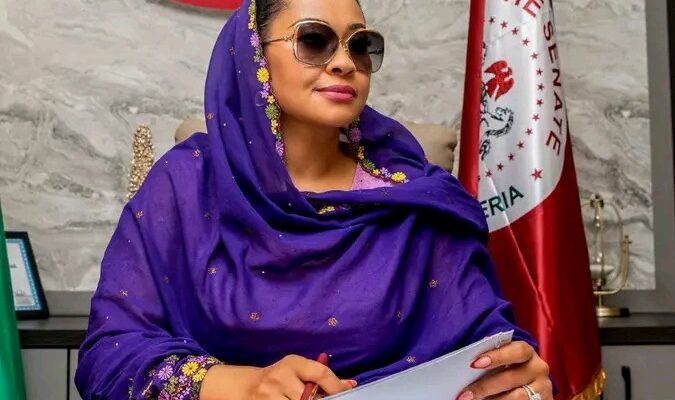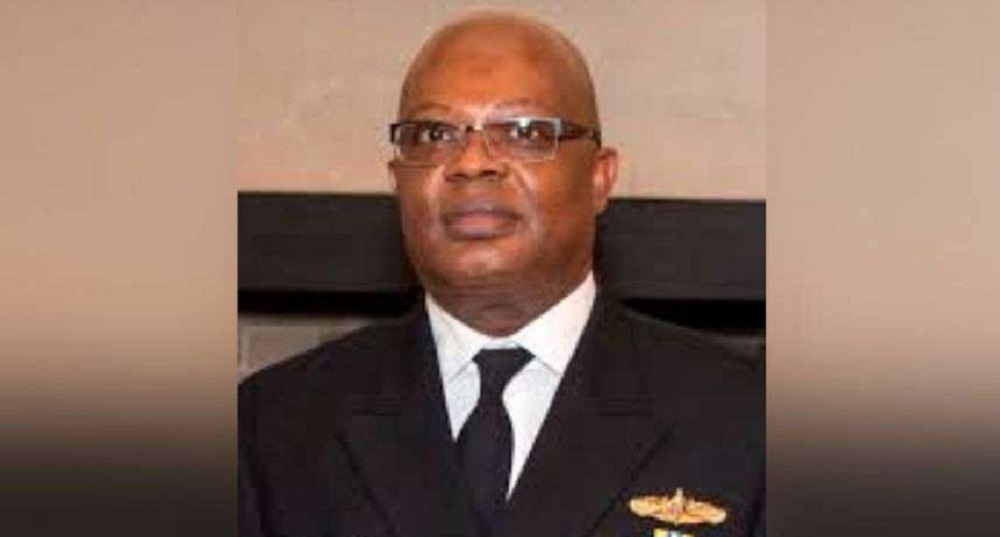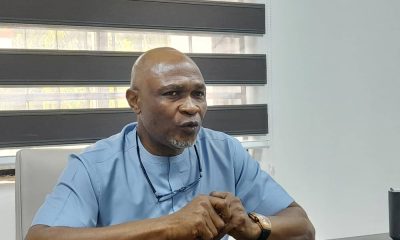News
Just in; World Bank slams NNPCL over inconsistent revenue report to FAAC

The World Bank has said that the reports submitted by the Nigerian National Petroleum Company Limited (NNPCL) to the Federal Account Allocation Committee (FAAC) were inconsistent, and lacked necessary details on its operations.
This was revealed in the bank’s Accelerating Resource Mobilisation Reforms (ARMOR) Report for May 17, 2024.
According to the WB, in addition to reduced net oil revenues, NNPCL’s opaque governance has significantly undermined the transmission of oil revenues to the federation.
“Non-transparent reporting to the Federal Ministry of Finance (FMF) and the Federation Account Allocation Committee (FAAC), make it difficult for the authorities to oversee NNPCL’s performance, calculate anticipated oil and gas revenues and determine the difference between revenues received by the Federation and NNPCL’s total revenue.
“The reports submitted to FAAC by NNPCL are inconsistent and lack information such as details on pledged revenues, the tradeable value of crude oil, actual payments, and receipts from global trade, among others. As highlighted in the Nigeria Public Finance Review (2022),7 financial reporting is opaque due to quasi-fiscal activities such as in-kind revenues in the form of crude oil, and costs directly deducted from revenues that would have otherwise been transferred to the Federation Account,” the report said in part.
NNPCL is governed by the Petroleum Industry Act (PIA) 2021
The world’s apex bank cited a case where the NNPCL pledged 35,000 barrels of crude oil per day to the owners in exchange for a 20 per cent stake in the privately owned Nigerian Dangote Refinery.
WB said although the total value of the contractual investments for pledged oil revenues was estimated to be worth US$5.8 billion at end-2022, the amount eventually declared by NNPCL was below expectation.
“All production sharing contracts signed by NNPC state that all fiscal payments shall be made in-kind by allowing the NNPC to lift tax oil, royalty oil, and profit oil. In joint venture operations, in which the Federation owns 55 per cent or 60 per cent of the equity oil and gas, the NNPC handles crude oil and natural gas receipts on behalf of the Federation.
However, the share of oil production in these contracts amounts to more than two-thirds of the total oil production in Nigeria.
“Nigeria’s dependence on oil and gas revenue is a source of fiscal vulnerability. During the commodity-price boom of 1996-2014, the revenue-to-GDP ratio was 12 per cent, (albeit considerably lower than the Sub-Saharan Africa (SSA) average of 21.5 per cent at that time), while a decade later, revenue-to-GDP was just 7.7 per cent in 2023.
“ Despite a 116 per cent increase in international oil prices between 2020 and 2022-2023, net oil and gas fiscal revenues transferred to the Federation fell in the same period from 2 per cent of GDP to 1.8 per cent of GDP due to falling oil production and the retention of fiscal transfers to finance the gasoline subsidy.
“Oil production fell from 1.8 million barrels per day (mbpd) in 2020 to 1.4 mbpd in 2022-2023 due to insecurity and a lack of investment and adequate maintenance. The cost of the gasoline subsidy increased over this period from 0.9 to 1.6 percent of GDP, deducted directly by the Nigeria National Petroleum Corporation Limited (NNPCL)5 and reducing the net oil revenue transfers to the Federation Account.”
Additionally, WB said the NNPCL has retained oil and gas revenues for projects such as a gas pipeline to Morocco.
“NNPCL also entered contractual arrangements that pledge future oil and gas revenues to business partners in lieu of cash payments,” the report added.
FG Eyes Fresh $750m W’Bank Loan
The Federal Government is also pressing for a $750m loan from the World Bank.
This loan project is a part of the broader $2.25bn approved by the World Bank for Nigeria on June 13, 2024, to bolster Nigeria’s economic stability and support its vulnerable populations.
The other second part of the loan package was for the Nigeria Reforms for Economic Stabilisation to Enable Transformation, Development Policy Financing Programme project.
Already, an agreement for the loan has been signed between Nigeria (through the Ministry of Finance) and the World Bank.
The agreement document read in part, “The bank agrees to lend to the borrower the amount of $750,000,000 as such amount may be converted from time to time through a currency conversion (“Loan”), to assist in financing the programme described in Part 1 of Schedule 1 to this Agreement (“Programme”) and the project described in Part 2 of Schedule 1 to this Agreement (“Project”, and together with the Programme, hereinafter jointly referred to as the “Operation”).
“The borrower may withdraw the proceeds of the loan in accordance with Section IV of Schedule 2 to this Agreement. All withdrawals from the loan account shall be deposited by the Bank into an account specified by the Borrower and acceptable to the bank.”
According to the Disbursement Linked Indicators set out in the loan agreement, the loan will only be released upon achieving measurable progress in key areas.
These include raising VAT collection through improved regulations, increasing excise taxes on health and environmental products, and boosting corporate tax compliance through enhanced digital infrastructure.
Central to the ARMOR programme is the government’s plan to increase VAT rates and expand taxpayer compliance.
Some of the loan targets include increasing VAT collections to 1.8 per cent of non-oil Gross Domestic Product, unlocking $105m of the loan.
The WB said despite recent reforms, Nigeria’s non-oil tax revenues underperform due to low tax rates, poor compliance, a narrow tax base, and high tax expenditures.
Reforms introduced in 2020-2021 increased non-oil tax revenues from 2.3 per cent of GDP in 2020 to 3.7 per cent of GDP in 2023 due to a rise in Value-Added Tax (VAT) rates, improvements in tax digitalisation, and the unification of the exchange rate in 2023.
“Despite this increase, tax revenues in Nigeria remain very low compared to peers (Figure 2). Unlike most developing countries, Nigeria has yet to tap VAT (a federal responsibility to collect while sharing VAT revenues) as a significant source of revenue. In 2022, VAT revenues were only 1.2 per cent of GDP while VAT tax expenditures were estimated at 1.98 per cent of GDP in 2022 (latest available data).10 The current VAT rate of 7.5 per cent is the lowest rate in Africa, and well below the SSA average of 15.8 per cent. Under the VAT legislation, the tax operates like a sales tax, since firms are unable to recover input VAT on purchases of fixed assets, services, and general administration costs.
“Meanwhile, Corporate Income Tax (CIT) has a very narrow tax base, and although collections have increased in recent years, they represented just 1.6 per cent of GDP in 2023. By comparison, poorly designed and sometimes discretionary CIT expenditures were estimated to cost 0.4 per cent of GDP.11 Excise rates are exceptionally low by global standards, and revenues were less than 0.1 per cent of GDP in 2023.12 Personal Income Tax (PIT) is assigned exclusively to the States, where challenges persist in collection due to tax evasion and underreporting: only 13 per cent of the workforce is registered for PIT (2018) and only 2 per cent of those are reported as active.
The bank advised that the tax and customs administrations need modernising to improve efficiency.
News
INEC ought to have archived recall petition long ago-Senator Natasha

Senator Natasha Akpoti-Uduaghan on Thursday hailed the Independent National Electoral Commission (INEC) for rejecting a petition to recall her as the lawmaker representing Kogi Central Senatorial District.
The lawmaker, who was a guest on Channels Television’s Politics Today, said the electoral umpire should have thrown out the petition long before it did on April 3, 2025.
“I’m a lawyer. I’m a senator and I understand how Nigeria works. For me, the most important thing is this recall process has been stalled.
“I give kudos and credit to INEC even though I believe they should have thrown it away from the get-go.
“I think it was void ab initio because there is no law in the Electoral Act that says a petition should be discarded just because there is no address but again, what if the address is false?”
The Peoples Democratic Party (PDP) chieftain argued that most of the addresses provided in the petition for her recall were false because most houses in her district weren’t labelled.
Even though INEC did count 208,000 signatures, I bet you if they had gone into the verification stage, they would have struggled to even have 500 people come out to attest to signing that,” she added.
News
We’re putting together new 2025 Budget for Rivers-Ibas

…hosts Delegation Of Rivers NASS Caucus
The Administrator of Rivers State, Vice Admiral (Rtd) Ibok Ete Ekwe Ibas, has said that an appropriation bill for 2025 is being articulated to provide for critical development concerns in healthcare delivery, education, agriculture and infrastructure.
Vice Admiral (Rtd) Ibas also said that the anticipated budget will cater to creating more employment opportunities for Rivers people and advance delivery of technology in critical facets of public life.
The administrator gave the hint when he hosted the delegation of Rivers State caucus at the National Assembly, led by Dr Barinada Mpigi, the Senator representing Rivers South-East District, at Government House in Port Harcourt on Thursday.
Those on the delegation included Senator Allwell Onyesoh, the minority leader of the House of Representatives, Rep. Kingsley Chinda, Hon Dumnamene Dekor, Hon Solomon Bob, Hon Cyril Godwin Hart,
Hon Blessing Amadi, Hon. Felix Nwaeke, Hon Kelechi Nwogu, and Hon Victor Obuzor
Ibas said he has been resolute, since assumption of office, to restore law and order, and with support from the security agencies, an environment has been created where Rivers residents feel valued and safer.
The Administrator stated that the commitment is to make Rivers a model of peace in the comity of States, with a stable economy and citizens courageous to pursue their livelihood without fear or molestation.
“In addition to our peace building efforts, we are also focused on the economic stability and development of Rivers State.
“Since the Supreme Court verdict on the state’s budget, we have acted swiftly and decided to put together a new budget that reflects our commitment to healthcare, education, social services, and continued infrastructural development.
“We have worked diligently to ensure that the process is transparent, inclusive, and most importantly expedited. Our goal is to ensure that we do not lose any more time in making the necessary investments that will improve the lives of citizens.”
Vice Admiral (Rtd) Ibas stated: “The budget which is been finalized focuses on creating job opportunities and investing in key sectors such as agriculture, infrastructure, and technology.
“We understand the urgency of this initiative, and we are committed to ensuring that they are implemented without delay.”
The Administrator noted that to get the task done, the support of the legislators will be required as key representatives of Rivers State in the National Assembly.
He sued for their assistance in securing the necessary resources and legislative backing that would bring the initiative of his administration to fruition.
“Your partnership is critical to success in ensuring that Rivers State remains on the path of progress and enduring peace for future generations.”
He explained that in the face of the challenges that beset Rivers, which led to the State of emergency declared by President Bola Tinubu, dialogue, community engagement and reconciliation were deplored to build trust among the citizenry.
He noted that the people of Rivers State have shown incredible resilience and patience in the efforts taken so far to restore the State back to the path of peace and respect for the law.
Vice Admiral (Rtd) Ibas assured that his administration remains committed to achieving enduring peace for the state.
He said: “Beyond security, we have prioritised community engagements as a central part of our strategy. Dialogue, reconciliation, and inclusivity have been key to building trust among our people.
“We are determined to strengthen the bond of unity in Rivers State and to foster an environment where every citizen feels valued, heard, and respected. Together, we are making strides in ensuring that peace becomes a permanent feature of our state.”
Responding, Senator Barinada Mpigi, representing Rivers South-East District, said they are dedicated representatives of Rivers people at the National Assembly and resolved to support all efforts that will bring development to the State.
While commending the administrator for the modest successes he had achieved so far, Senator Mpigi pledged the support and cooperation of the legislators to ensure the return of the state on the path of law and order.
News
Just in: Shettima jets out to attend Senegal’s independence

Vice President Kashim Shettima has departed Abuja for Dakar, Senegal for official assignment.
The VP is expected to represent President Bola Ahmed Tinubu at the West African nation’s 65th Independence Anniversary celebrations.
Senegal marks its Independence Day on April 4 each year, commemorating its liberation from French colonial rule in 1960.
The annual celebration is a significant event featuring national parades, cultural displays, and ceremonies highlighting the country’s achievements and unity.
A statement issued on Thursday by Senior Special Assistant to the President on Media and Communications, Office of the Vice President, Stanley Nkwocha, said Shettima’s participation followed an official invitation from Senegalese President, Bassirou Diomaye Faye.
This underscored the strong diplomatic and economic ties between Nigeria and Senegal.
The two nations share longstanding relations, particularly within the Economic Community of West African States (ECOWAS), fostering cooperation on regional security, trade, and development initiatives.
The event is expected to reaffirm Senegal’s commitment to democratic governance and regional cooperation.
Vice President Shettima is scheduled to return to Nigeria immediately after the one-day celebrations, continuing his engagements in national development and diplomatic outreach.
-

 News12 hours ago
News12 hours agoNatasha: Kogi PDP hammers Ododo, reiterates unfeigned support for her
-

 Economy11 hours ago
Economy11 hours agoSEE Black Market Dollar To Naira Exchange Rate Today 3rd April 2025
-

 News19 hours ago
News19 hours agoRivers APC demands Fubara’s probe over ex-HoS allegations
-

 News7 hours ago
News7 hours agoJust in: “Ignore rumour mongers, there was no time I collapsed “-Wike asserts
-

 News7 hours ago
News7 hours agoCJ transfers Natasha’s case to Justice Nyako
-

 News10 hours ago
News10 hours agoJust in: INEC dumps recall petition against Sen Natasha
-

 Economy20 hours ago
Economy20 hours agoNaira rebounces against the dollar in parallel market
-

 News8 hours ago
News8 hours agoOBIO/AKPOR FEDERAL CONSTITUENCY FREE MEDICAL OUTREACH(PHOTOS)





